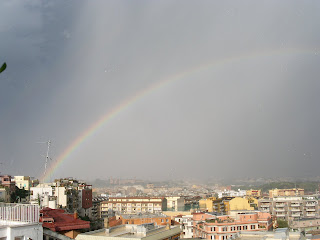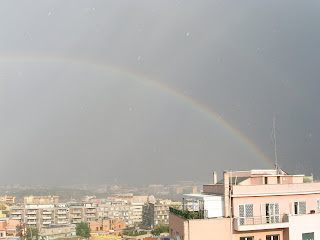Roberto Ruffino, the Director of Intercultura (the Italian counterpart of AFS) for over 30 years and expert in American-Italian cross-cultural differences, once made an observation that has stuck with me. In a presentation on Italian culture for a SIETAR conference, he noted that while many people consider Italians to be individualistic in their behavior, they are actually quite conformist and group oriented. But within this cultural orientation and the control of family and tradition, they are allowed lots of room to cultivate personal expression, to be “particolare” and express individuality as long as it does not interfere with group obligations. Often Italians demonstrate very strong personalities publicly, express distinctive and even outlandish personal beliefs and allow themselves the privilege of highly idiosyncratic behavior while, oddly (to us), accepting obligations in well-defined spheres of their lives (all those "non si fa" and unwritten social rules). What we see as elaborate and extravagant ways (Vittorio Sgarbi on TV talk shows and PM Ida Boccassini’s hairstyles and jewellery come to mind) are not expressions of individualism but individuality – l’essere particolare.

In the early pages of Tobias Jones’ book, The Dark Heart of Italy, he notes, “Rather than excitingly chaotic, Italians began to appear incredibly conservative and obedient… systemized and rigidly hierarchical.”
In the chapter on The Group and the Individual of the book, Riding the Waves of Culture, Trompenaars/Hampden.Turner give this business example. “If the Americans are criticised there is a good chance that Bill will put an elbow into Pete, while asking whose rotten idea it was, while the Italians will walk out as having suffered a group insult, regardless of the fact that it was Giorgio who did it.” The group as a unit of survival above that of the individuals.
My American friend,Pat, a long-term expat in Rome, didn’t leave a comment, but sent me an email with this anecdote: “I have had many experiences with Italian groups and the group mentality, some amusing and others exasperating. One was in a Liceo Scientifico. I was the afternoon English conversation teacher, when the kids were tired and even more highly strung than usual. Several of the Italian professors were concerned; they knew their students quite well and told me to just call out if any student got out of hand. I instantly and self-assuredly replied: "I'll just send such a student out the room!"
They all looked at me, laughed, and then said: And all the rest will follow him/her out! One for all and all for one, the group wins out again.
A domani,
E















